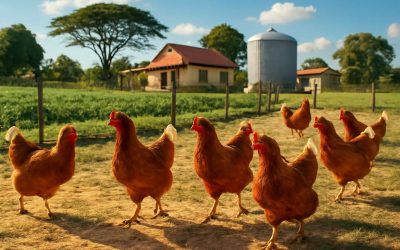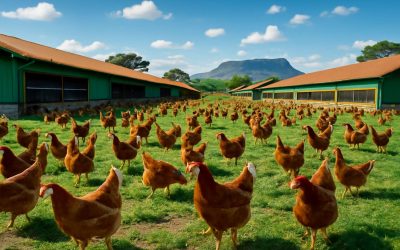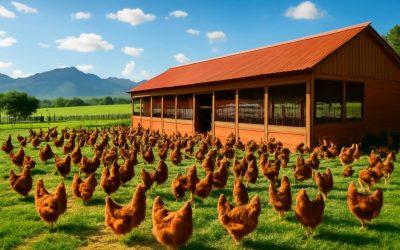
Poultry farming is a profitable business that provides an excellent source of income. It is also a very satisfying career choice for people who enjoy working with animals and love the idea of providing healthy food to their families.
The poultry industry is a large one and has been growing rapidly in recent years. It produces a variety of products, including eggs and meat. The value of these products has increased dramatically, thanks in part to the global trend toward buying more homegrown foods.
Despite its relatively high output, poultry farming is susceptible to a variety of challenges that can affect its profitability and sustainability. A pandemic, such as the COVID-19 outbreak that has afflicted the United States and other countries, can be especially difficult for farmers.
It is important to understand how to run a successful poultry farm so that you can maximize your profits. Here are a few tips that will help you to do so.
1. Know what type of birds you want to raise and how much space you need for them.
A variety of birds can be raised in a poultry farm, but the most common are chickens and ducks. These types of birds can be raised as broilers or egg layers, and each requires different housing and feeding conditions.
2. Choose a breed of bird that will thrive in your climate and produce the most meat or eggs.
In order to produce a wholesome, nutritious product that consumers will want to buy, it is important to select a breed of bird that will grow well in your environment and produce the highest quality meat or eggs. This will ensure that your customers are happy with the results of your work and will be willing to pay you a good price for the product.
3. Choosing the right area for your farm
If you are planning to build a commercial poultry farm, it is important to select a location that will allow you to grow your birds in a manner that is best for their health and wellbeing. It should be a quiet, calm and pollution-free place where your birds will be comfortable in their surroundings.
4. Feed your birds the right nutrients
The nutrition of chickens and other types of poultry depends on six classes of nutrients: vitamins, minerals, amino acids, carbohydrates, fats, and water. These are necessary for their growth, production, and reproduction.
5. Invest in a quality cage system
A cage system is a common way to house hens during their time in the egg-laying process. It allows for the production of more eggs and lowers the cost of rearing a flock.
It also reduces mortality, prevents cannibalism, and increases egg production and hatchability. Its use can also improve culling and reduce both space and labour requirements.
6. Consider a free-range farming method
A free-range farming system is a more humane way to raise poultry and is the ideal option for those who want to avoid the harsh chemicals found in most commercial egg-laying systems. It also gives the chickens more freedom, which can lead to happier, healthier birds that are more likely to produce more eggs.



0 Comments